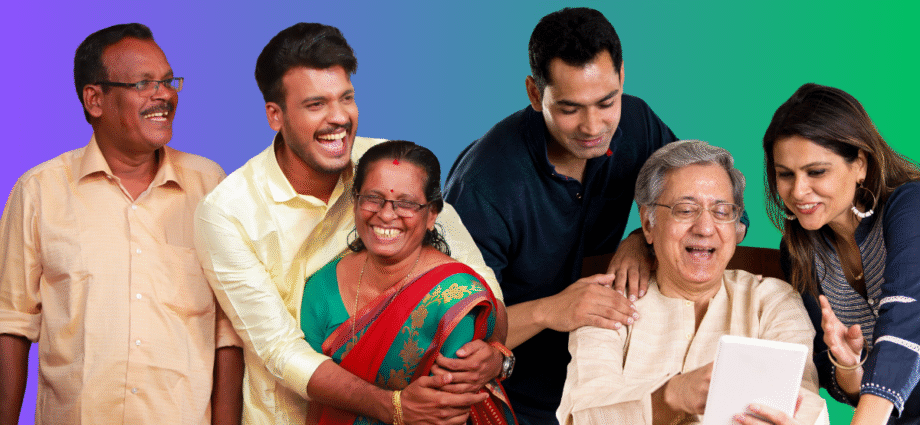It’s been hard to ignore the news coming out of the West. Reports of rising anti-Indian sentiment, once unthinkable given their celebrated status as the quintessential “model minority,” are now alarmingly common.
For decades, the Indian diaspora was the global benchmark: high earners, highly educated, and seemingly assimilated to the point of invisible success.
But that narrative is collapsing.
While the causes are complex, fueled by xenophobic politics and economic anxieties in host countries, a deeper, more troubling reason is emerging: a visible shift in conduct among a new generation of Indian migrants. They are being accused of replacing dignity with defiance and quiet assimilation with a loud, entitled “brazenness.”
As a Filipino expat, watching this spectacle unfold isn’t just an interesting observation; it’s a terrifying preview.
The cracks forming in the Indian diaspora’s social contract are a mirror reflecting the fragility of our own position abroad.
It’s a wake-up call that the respect we’ve worked so hard for is neither guaranteed nor unconditional.
The Filipino Social Contract: Built on Respect and Hiya
Filipinos abroad, particularly in the Middle East, North America, and parts of Asia, have largely forged a social contract built on different pillars than the Indian diaspora’s economic might.
Our contract is one of:
- Reliability and Diligence: Whether in nursing, engineering, or domestic work, we are often lauded as reliable, skilled, and tireless workers.
- Cultural Deference and Hiya (Shame): We often prioritize avoiding confrontation and maintaining good relations. Our internalized sense of hiya acts as a powerful, self-regulating mechanism that prevents us from engaging in behavior that would bring shame to the family or the Philippines.
- Assimilation through Service: Our integration often happens through service—we staff the healthcare systems and service industries, integrating quietly into the background.
This contract has protected us. It has earned us praise, job stability, and a degree of social acceptance that is precious.
When “Entitlement” Replaces “Dignity”
The shift currently plaguing the Indian community is the dangerous exchange of dignity for entitlement. Their early immigrants understood that acceptance was conditional, earned through discipline.
But today, a new, louder generation, possibly emboldened by India’s rising global status, seems to believe that “obnoxious behavior will be accepted wherever we go,” demanding accommodation without offering reciprocity.
We’re seeing reports of:
- Massive, disruptive public celebrations and weddings.
- Alarming instances of vulgar and aggressive behavior, especially from younger male students.
- A shocking lack of civic sense, leading to highly publicized incidents of public nuisance.
For us, the risk is that the bad behavior of one Asian community is often painted onto all of us. If host countries start associating “Asian immigrant” with “loud, entitled, and disruptive,” the gentle respect we’ve cultivated will be the first casualty.
The hard-won reputation of the Filipino nurse, the hardworking engineer, and the reliable crew member will be overshadowed by a generalized frustration with an entitled foreign presence.
The Warning in the Mirror
The rising anti-Indian sentiment is being weaponized by xenophobic elements, and their ammunition is often provided by the diasporic community itself. Every viral video of a misbehaving Indian provides a ready excuse for those who already want all immigrants gone.
This should terrify us, because the behavior that risks tearing up their social contract is entirely within our power to prevent, yet it is a fight we must constantly wage:
- The Rise of “Pinoy Pride” vs. Hiya: While “Pinoy Pride” is a beautiful thing, when it morphs into an aggressive demand for validation or a refusal to respect local norms, it becomes toxic. We must ensure our celebrations and expressions of cultural pride are respectful, not disruptive. Our hiya must remain the guardrail against arrogance.
- Maintaining Our Collective Reputation: Our diaspora is not homogeneous, but our individual actions have collective consequences. The one Filipino who engages in petty theft, loud public quarrels, or cultural insensitivity abroad risks becoming the face of our entire community in that host country. The legacy of every lola who worked three jobs to send money home is at stake.
- A Shared Responsibility: We have to be willing to call out our own. Just as some members of the Indian diaspora are now urging their community to remember discipline, we must also hold each other accountable. We cannot afford to let our reputation—our most valuable global asset—be squandered by a few who forget where they are and why they are there.
The “model minority” myth was always flawed, forcing an unsustainable standard. But the new reality is far worse.
We must learn from our neighbors’ struggles and double down on the conduct that has earned us our place: humility, respect, and quiet dignity.
For every Filipino expat, the challenge is clear: Protect the contract, because if it breaks, the consequences will be devastating for all of us.
You Might Also Like:
Exploring Adelaide: A Harmony of Heritage, Nature, and Gastronomy
Experience Authentic Thai Food: A Culinary Journey For Your Taste Buds
Falling into Alicante: A Filipino Expat’s Unexpected Home in Spain
Why Europe Lives in Apartments While the UK Dreams of Houses?
Cherry Blossoms After Winter - A Review and Analysis
Uncover Paradise: Top 10 Unforgettable Beach Destinations in the Philippines
- From Davao to Alicante: What No One Tells You About Moving to Spain - 24 February 2026
- Reinventing Yourself in Your 30s: Career, Country, and Calling - 22 February 2026
- The Economics of Global Beauty Pageants: A Deep Financial Breakdown - 22 February 2026











